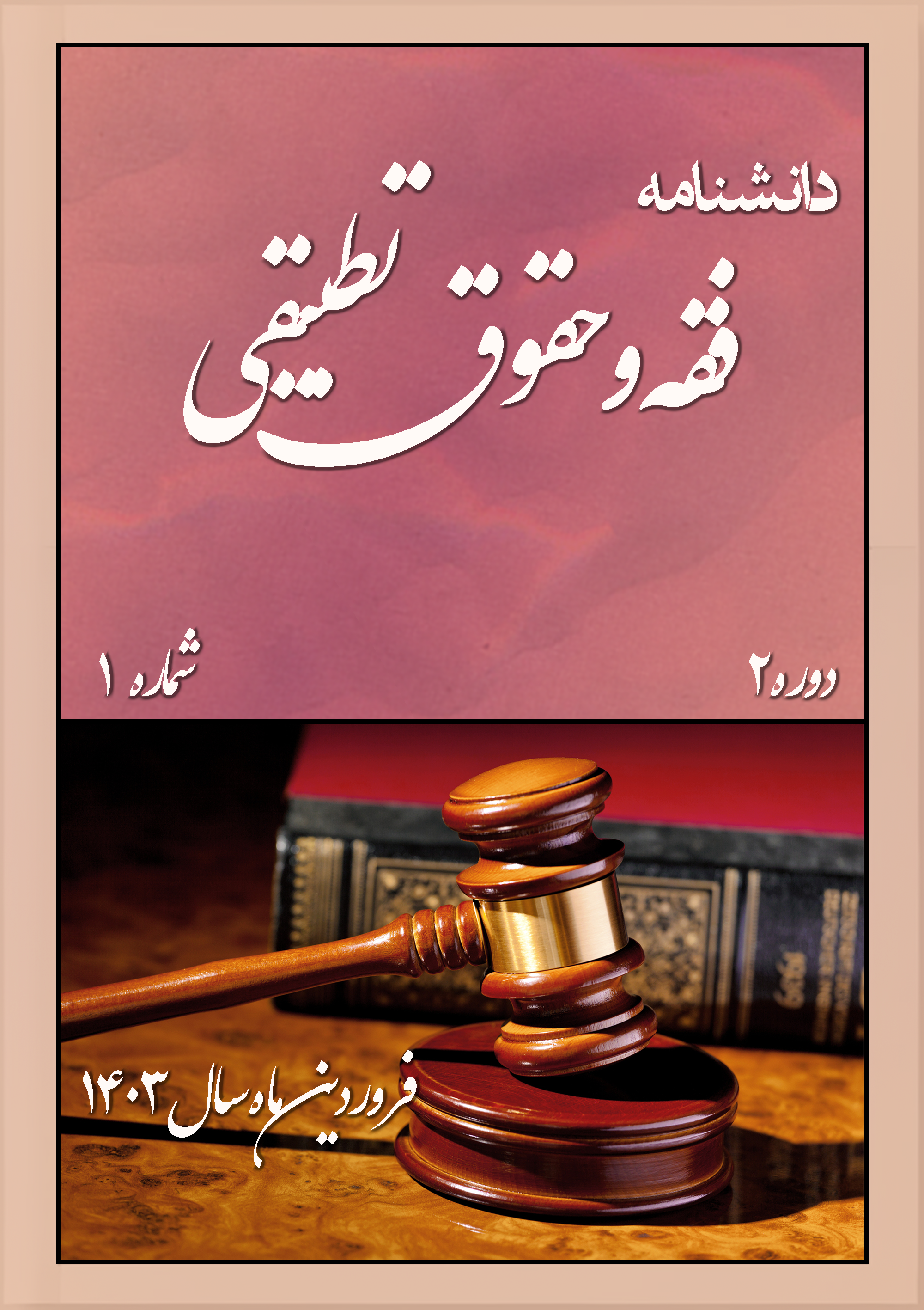A Comparative Analysis of Judicial Security in Iran
Keywords:
Judicial Security, Judicial Independence, Transparency in Legal Proceedings, Judicial Corruption, Judicial Oversight, Rule of LawAbstract
Judicial security, as one of the fundamental pillars of the rule of law, ensures both criminal and civil justice and is considered essential for safeguarding individual rights and personal security. The realization of this principle requires the structural and functional independence of the judiciary, transparency in the adjudication process, effective oversight of judges' performance, and a systematic fight against corruption within the judicial system. This study, through examining the challenges to judicial security in Iran, reveals that organizational and financial dependence of the judiciary on the executive branch, political and security interferences in legal proceedings, delays in case processing, a weak transparency framework, and ineffective judicial oversight are among the most significant barriers to achieving judicial security in Iran. A comparative analysis with the legal systems of the United States and France indicates that the establishment of independent bodies for appointing and overseeing judges, the reinforcement of jury authority, public disclosure of court decisions, enhancement of financial transparency among judicial officials, and the reduction of political influence in legal proceedings are among the most critical factors contributing to judicial security. In contrast, an examination of the legal systems of Turkey and Afghanistan demonstrates that the erosion of judicial independence, the spread of corruption, and the absence of effective oversight have led to the weakening of the legitimacy of judicial rulings and a decline in public trust in the judiciary. This research, by proposing solutions such as reforming the judge appointment and promotion process, establishing independent supervisory commissions, structurally combating judicial corruption, developing electronic adjudication systems, and strengthening the role of juries, emphasizes the necessity of implementing fundamental reforms within Iran’s judicial system. The study’s findings indicate that achieving justice and restoring public trust in the judiciary will not be possible without ensuring independence, transparency, and efficiency in the structure and functioning of the judicial apparatus.
Downloads
References
Akbari, M., Sadati, S. M. J., & Javan Jafari Bajnordi, A. R. (2023). Re-reading the Principles of Criminal Procedure in the Face of Freedom-Oriented and Security-Oriented Discourses. Journal of Judicial Law, 87(123), 203-223.
Akram, A. (2018). Judicial independence in Afghanistan: Challenges and reforms. International Journal of Afghan Studies, 6(3), 87-98.
Basir, M. B., Ameri Nia, M. B., & Janipour, K. (2024). Moral Responsibilities and Judicial Security in Criminal Procedure. Journal of Ethics in Science and Technology, 19(4), 108-115.
Frajoli, F. (2020). Judicial Security and the Rule of Law. Cambridge University Press.
Hajideh Abadi, M. A., & Samimi, M. J. (2024). Challenges of Judicial Security and Solutions to it with Emphasis on the Principle of the Rule of Law from the Perspective of Jurisprudence and Law. Journal of Jurisprudence and Law, 18(49), 31-62.
Hosseini, S. M. S., Omidzadeh, B., & Biglari, F. (2024). Judicial Corruption from the Perspective of Zemiology. 10th International and National Conference on Management, Accounting, and Law Studies.
International Covenant on Civil and Political Rights (ICCPR). (1966). Article 14 on Fair Trial Rights.
Najafi Zadeh Dehkordi, H., Sadeghi Deh Sahraei, M., & Jazayeri, S. A. (2023). Judicial Security from the Perspective of Iranian Jurisprudence and Law and Human Rights Documents with Emphasis on Public Trial in Criminal Cases. Journal of Comparative Jurisprudence, 3(1), 31-41.
Salehi, H., & Zare, M. K. (2023). Security-Oriented Approach to Criminalization in Iranian and American Law. Journal of Shiraz University Law Studies. https://doi.org/10.22099/jls.2024.48382.5010
Shafaqna. (2017). Turkey’s constitutional changes and their impact on judicial independence. https://www.shafaqna.com
Torabi, M., & Behnia, M. (2017). Judicial Security and Related Guarantees in the Constitution of the Islamic Republic of Iran. International Conference on Islamic Law and Jurisprudence.
Vijeh, M. R. (2011). Legal Security as a Condition for the Realization of Judicial Security. Journal of Strategy, 58-95.
Zedner, L. (2004). Criminal Justice. Oxford University Press. https://doi.org/10.1093/oso/9780198763666.003.0001 10.1093/oso/9780198763666.001.0001










